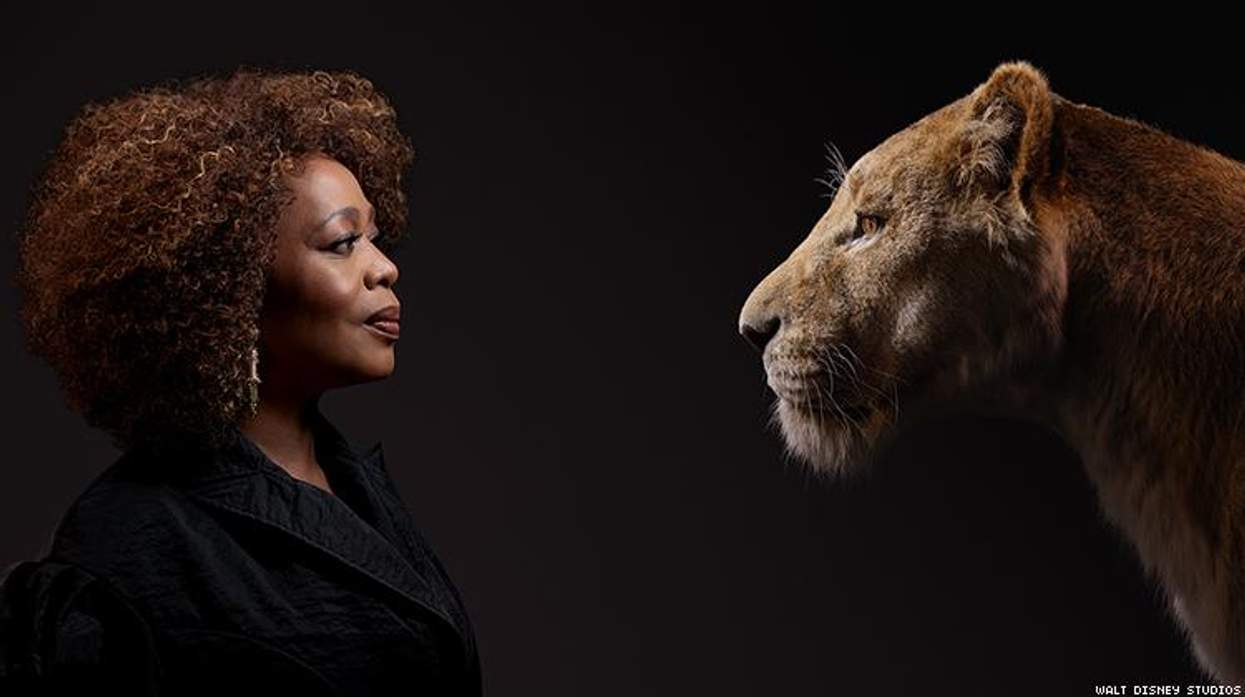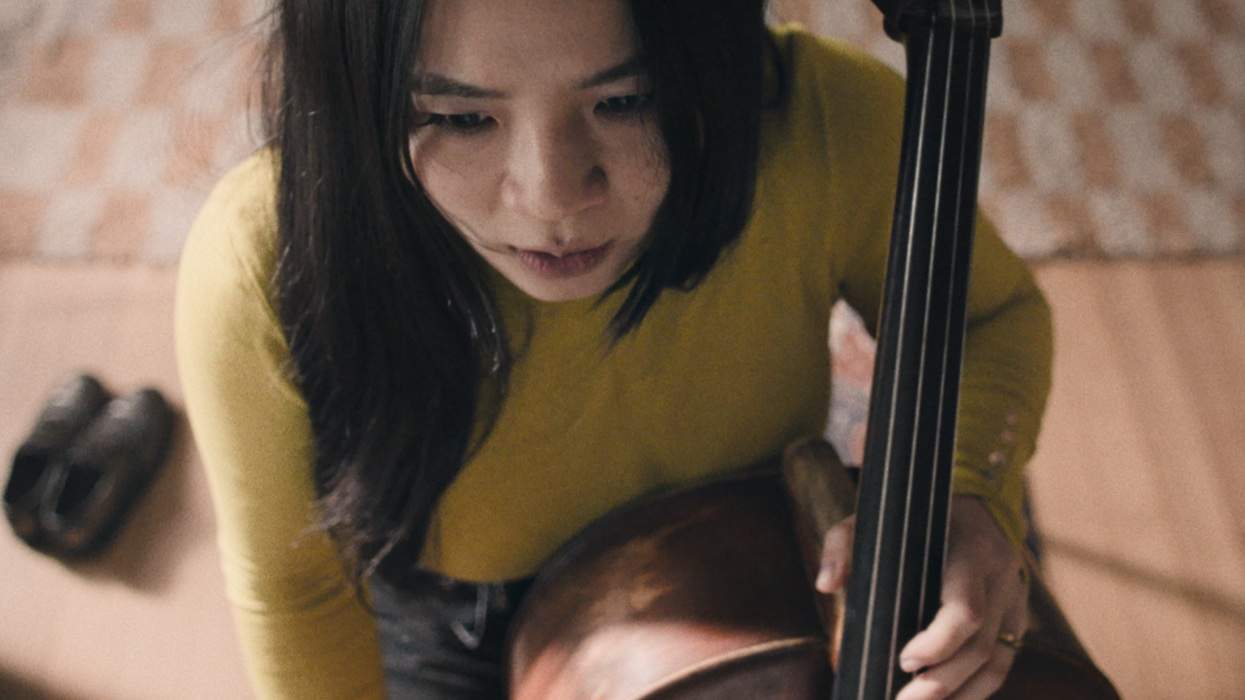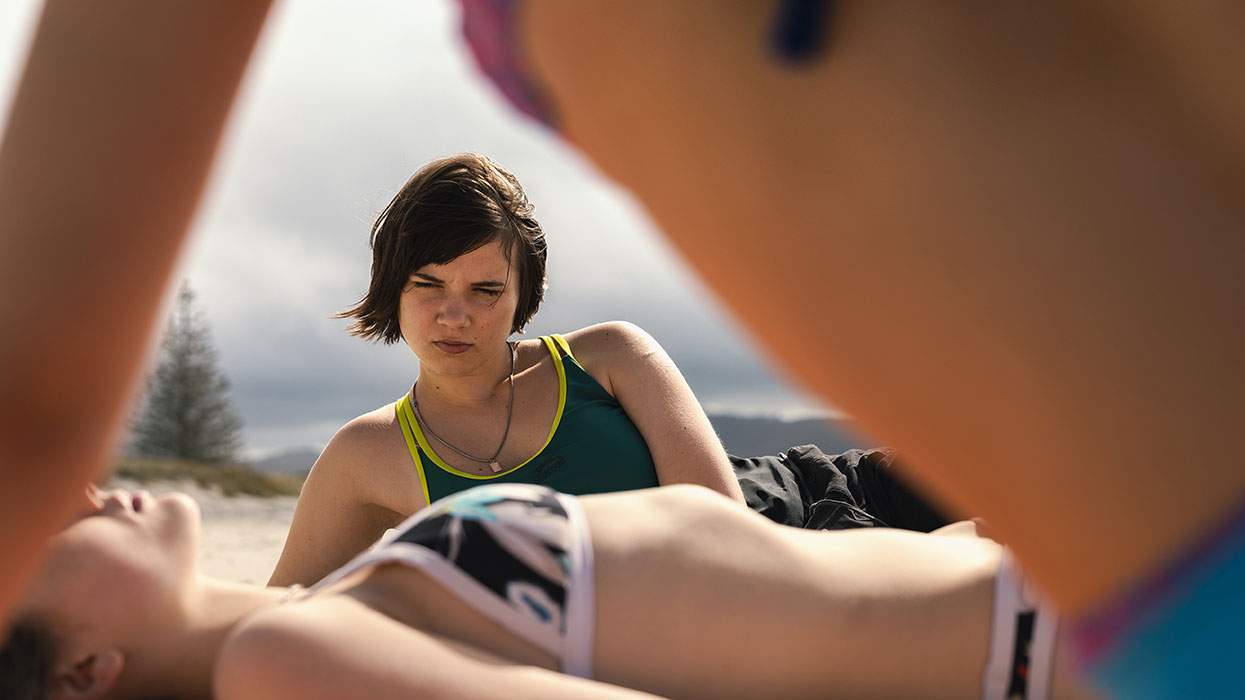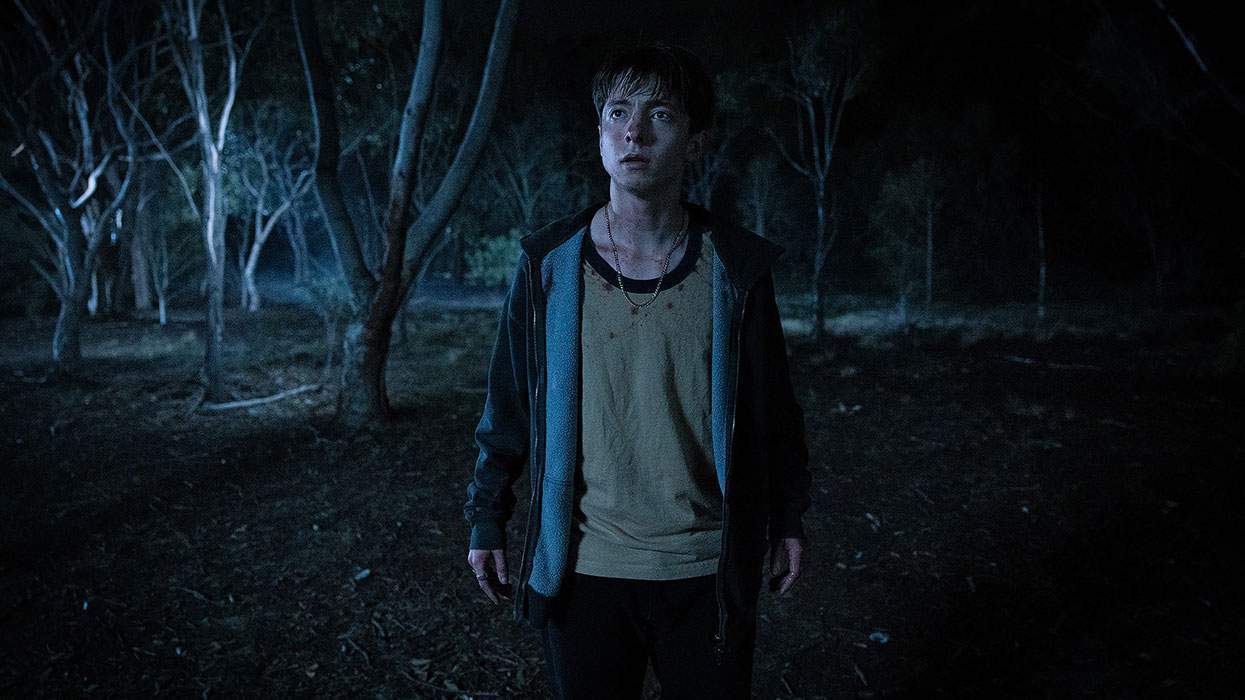Disney's live-action The Lion King, which uses breakthrough technology to reimagine beloved characters Simba, Nala, Pumbaa, Timon, and the gang in startling verisimilitude, arrives today at a time when some of the classic tales from the mega-studio, like Aladdin and The Little Mermaid, are being retrofitted with more inclusive casting.
Of course, The Lion King received a second iteration in the form of a smash Broadway show that was also a critical success, but the new film, with its cast made up primarily of people of color, has the power to reach audiences in a new way. While The Lion King's story is Shakespearean in scale with the lost, outcast Simba as a stand-in for Hamlet, it's also a timeless story of self-discovery and standing up to authoritarian forces. And Lion King star Alfre Woodard, who plays Simba's lioness mom, Sarabe, says it could not have come at a better time.
"A story that brings joy, that reinforces community and describes what real power is ... it is a perfect time to put that joy into the world," Woodard tells The Advocate.
A veteran who kicked off her career in the early '80s, Woodard has starred in Hill Street Blues, St. Elsewhere, True Blood, and Luke Cage on TV and in films including Passion Fish, Crooklyn, and the upcoming Clemency, which won the Grand Jury Prize at this year's Sundance. Like everyone who existed in 1994 when the original animated Lion King was released, Woodard has a connection to the film. She recalls taking her young children to see it and later using Simba and Nala's bravery as examples for her kids.
"Every incarnation has been so enjoyable because it touches on a reality that everybody shares. It's family, it's the pride or our tribe, our neighborhood, or whatever that group or community is. And there are truths that are told. Truths we need to hear," Woodard says.
"It doesn't matter whether you're that little cub or whether you are 40, 50, 60 years old because we always carry that little lioness in us, that little cub, and we can use those same truths on the streets, wherever we are in the world -- in our offices."
On the surface, The Lion King is about bloodlines, kings, and the abuse of power. When the original was released 25 years ago, Bill Clinton was president and the story felt far away and more aligned with its Shakespearean roots than with present-day America. But the new Lion King from Jungle Book director Jon Favreau is, at times, starkly realistic and darker than the 2-D animated film or even the Broadway show. In 2019, it's easy to watch Chiwetel Ejiofor's Scar -- a decidedly more vicious villain than Simba's fratricidal uncle that Jeremy Irons voiced to often-campy effect in the original-- conspire with the hyenas to off the reigning king, Mufasa (James Earl Jones), and rule Pride Rock and view it as Trumpian. Woodard acknowledges that this Scar and the hyenas who genuflect to him bear similarities to current politics, but she doesn't want to give it too much of her energy.
"They did, of course [conjure the current administration], but I'm not going to comment on that because I don't want him in the discourse. He doesn't get to be in the discourse about a classic story being told. But everyone can bring whatever they want to it," Woodard says. "I just know that in this moment in time, on every continent, in every country, it is interesting how people of greed and power-hungry people are flexing and it's surprising. It's surprising."
One change to the new Lion King that renders it more Hamlet-esque than ever and more prescient in an era of public discussions around gendered abuse of power and women's equality is that following Mufasa's death, this Scar attempts to make Sarabe his queen -- his Gertrude in Hamlet's world. More than once, he attempts to manipulate her into marriage, but Sarabe won't be swayed.
While Woodard doesn't utilize the buzz phrases #MeToo, Time's Up, or gender equality to discuss her character, she does point out that the new Lion King has a bit of a feminist bent in its emphasis on Sarabe, Nala, and the rest of the lionesses as the real keepers and strength of Pride Rock.
"We know the lionesses -- they actually run the pride. The kings are out somewhere at the perimeters going like, 'Don't come near our lionesses,'" Woodard says.
"We're like, 'I don't need a king. Thank you. I'm just fine.' And when it's time to make a move they make the move."
In recent years, Disney has made a concerted effort to become more diverse when casting its live-action films. Last month, the news that Halle Bailey, a young woman of color, would star as Ariel in the live-action remake of The Little Mermaid caused an uproar on social media with many saying their childhoods are now ruined because, they asserted, Ariel can only be white with red hair.
This Lion King features black actors at the top of their game in roles that were previously voiced by white actors, and it's a significant step toward inclusivity. Donald Glover steps in as Simba, who was originally voiced by Matthew Broderick, the iconic Beyonce is Nala, a role formerly voiced by Moira Kelly (The Cutting Edge), and Ejiofor takes over Irons's Scar.
"It is set in Africa. But you have to be patient with the world and let it develop at its own time," Woodard says of Hollywood finally getting on board with casting black actors in those roles.
Regarding the ado over Bailey's casting as Ariel, Woodard says,
"It's painful because you just can't take it personally. When you get angry or outraged, you're taking it personally, and most ignorance does not deserve the focus of our outrage."
"We're going to debate the color of a mermaid? Are you fucking kidding?" Woodard says, adding that sometimes she just has to laugh at the ridiculousness of the arguments.
While little kids may not realize at first who's behind the animals in the new Lion King, it could make a difference for those who need something to connect with.
"I'm glad for those kids and adults, whoever they are, to have something, to see themselves represented, and to have truisms that hold them if they're in a community that does not support them, that does not look on them," Woodard says.
"I'm especially happy for kids of the dominant culture. It's a shame to grow up oblivious and ignorant because of the people in charge of you [who] are oblivious and ignorant," she says.
Not unlike Sarabe, who brushes off Scar's intimidation and threats with strength and grace, Woodard says that as a young woman of color in the world she devised her own strategy for handling ignorance.
"When everything around me said I was less than, well, I became more fabulous than. It was like, OK, I'm not going to argue with you about that. I am going to just be fabulous to the point that eventually you want to be like me."
















Charlie Kirk DID say stoning gay people was the 'perfect law' — and these other heinous quotes
These are some of his worst comments about LGBTQ+ people made by Charlie Kirk.